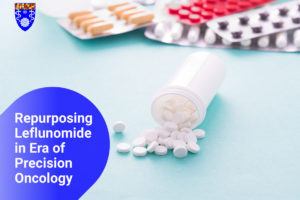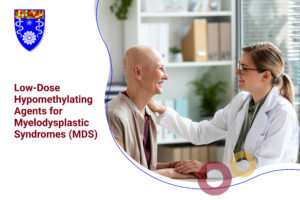Introduction
Repositioned drugs quickly became popular due to their potency, versatility, and low levels of toxicity. Many pharmaceutical companies and doctors invest in repurposed medications because of these reasons. In addition, their production is significantly much faster than researching new drugs. They cost cheaper too.
All the advantages of repositioned drugs are beneficial to patients. Perhaps that is the most significant factor to consider. One such drug is hydroxychloroquine. Originally used to treat malaria from mosquito bites, hydroxychloroquine is now a potentially efficient medication in treating cancer. This article will cover the brief history of hydroxychloroquine. We will also discuss its uses in treating cancer.
So, read on to learn how drug repurposing breathed a new life into hydroxychloroquine.
Brief History of Hydroxychloroquine
What is hydroxychloroquine? Hydroxychloroquine’s original use is to treat and prevent malaria. Today, it found a new purpose in treating and managing cancers. It also has other benefits in treating lupus, rheumatoid arthritis, and porphyria cutanea tarda. It is typically taken by mouth as a pill called hydroxychloroquine sulfate.
Hydroxychloroquine and Cancer
What are hydroxychloroquine uses in cancer? Recently, pharmaceutical experts and doctors discovered that hydroxychloroquine can potentially treat and manage cancer. Research showed hydroxychloroquine (HCQ) affects cancer cells by increasing tumor sensitivity. Cancer is typically resistant to existing therapies. The discovery of HCQ in treating cancer could not have come at a better time.
Ciska Verbaanderd and his team from the University of Leuven in Belgium stated that HCQ and a similar drug called chloroquine (CQ) could be crucial in treating cancer. They also emphasized that further studies could yield vital information.
Verbaanderd and his team uncovered evidence suggesting that HCQs and CQs efficiently treat cancer. Their research shows that these drugs can treat glioblastoma, lung cancer, and pancreatic cancer.
Known Mechanism of Action of Hydroxychloroquine
Inhibits Autophagy
Autophagy is the process when cells eliminate their own damaged or unnecessary components. The inhibition of autophagy also involves energy and nutrients. HCQ efficiently inhibits autophagy. Moreover, the study revealed that HCQ blocks CXCL12/CXCR4 signaling pathway. Previous research that this process help prevents cancer development and progression.
Inhibit CXCL12/CXCR4
The chemokine receptor called CXCR4 and its ligand CXCL12 forms a pivotal axis. It enables metastasis by many solid tumors.
An over-expression of CXCR4 tumors connects to an aggressive lymph node and phenotype.
The binding of CXCL12 to CXCR4 promotes tumor progression by a handful of mechanisms. It is associated with activating several signaling pathways needed for biological responses. It includes chemotaxis and immune suppression.
The CXCL12 attracts regulatory T cells and protumor myeloid cells into the existing tumor. It blocks innate and adaptive mechanisms of tumor elimination.
New Mechanism of Action of Hydroxychloroquine
According to the Proceedings of the National Academy of Sciences (PNAS), a protein called TMEM16A discharges cisplatin from cellular compartments called lysosomes. Lysosomes functions as a waste disposal system. It breaks down molecules to reuse and expel damaged or waste cells.
Brief Summary of Clinical Data
Here’s a summary of the clinical data based on the conducted studies of Ciska Verbaanderd and his team.
30 clinical trials investigated the effects of HCQ/CQ in treating various cancers. The research focused on the efficiency of the medications HCQ/CQ. In addition, they studied the best dosing and administration methods.
From PITTSBURGH, Pa
Many health professionals concluded that hydroxychloroquine
is ideal for treating cancer. A recent study says that HCQ boosts the body’s tumor-killing capabilities. HCQ treatment works well in patients with chemotherapy-resistant in head and neck cancers.
Medical experts from the University of Pittsburgh reported that
Hydroxychloroquine use in treating cancer inhibits pathways that drive resistance to cisplatin – a chemotherapy component. This study proposed combining HCQ and cisplatin to test head and neck cancer.
The breakthrough research indicated that the protein TMEM16A flushes cisplatin from cellular components called lysosomes. Moreover, tumors with excessive TMEM16A production drive a novel signaling pathway that speeds up lysosome production and cisplatin expulsion from the cell. The scientists also added that this is an active mechanism cancer cells use to get rid of chemotherapeutic drugs.
Benefits of Hydroxychloroquine in Cancer Treatment
The most significant advantage of using HCQ in treating cancer is keeping chemotherapy from failing. Impaired chloride transport usually results in kidney diseases, epilepsy, kidney stones, and cystic fibrosis. Researchers concluded that these factors link to TMEM16A and cancer.
The researchers say chemotherapy sometimes fails in patients suffering from head and neck cancers. The experiments suggest that HCQ induces a synergistic effect with cisplatin. You can find the research records published in the journal Proceedings of the National Academy of Sciences.
Conclusion
Using hydroxychloroquine in treating cancer is one of the most significant discoveries in oncology. Repurposing this drug to battle resistant cancer during chemotherapies came at the right time. Cancer treatment has advanced to impressive heights, making cancer treatment and management easier for doctors and patients.
We hope this article explained the advantages and efficacy of repurposed drugs in treating cancer. Remember that old drugs can still save your life if guided by the right hand. Now that you know the essentials of drug repositioning, the next step is to find a team that specializes in using it to its true potential.
Experience the Benefits of Off-Label Medication in Treating Cancer
The Institute of Integrative BioOncology offers safe and effective cancer treatment and management. Our oncologists specialize in using off-label medications to help you recover from cancer and live a better life.
Dr. Paul Zhang uses evidence-based cancer treatment and aftercare, especially off-label medications.




